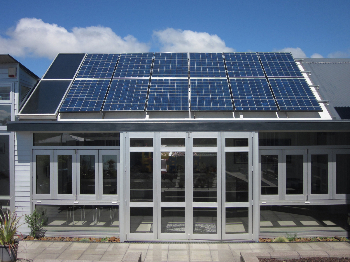
MANGAWHAI'S NO.1 NEWSPAPER
|
|
|
Solar power or solar hot water: The Do’s and Don’t’s New Zealand ‘s high scepticism towards solar energy New Zealand ‘s high scepticism towards solar energyThe booming demand for solar power in New Zealand is very unusual, given the fact that scepticism towards solar energy has been very high for many years. Government does not promote solar energy as part of the future energy mix and there is a lot of confusion, misleading information and a huge lack of education on solar energy. Unlike many developed countries worldwide there is no compulsory feed-in tariff in New Zealand for solar power export to the grid. Unfortunately we also see a lot of solar ‘cowboys’ selling solar PV systems for the wrong reasons, promoted as ‘short pay-back times’ and ‘reducing the energy bill’. In the field of solar hot water systems we also see ongoing issues on quality and performance reported in BRANZ reports creating even more scepticism towards the use of solar energy. The world is booming in solar energy while NZ is not keeping pace. We think that solar energy deserves a better place in NZ and we hope to debunk the many myths on solar energy by a series of articles that are informative, and will summarise compelling facts on the state-of-the-art solar technology. NZ households and energy efficiency - the big problem The energy needs for hot water production in an average NZ household are (too) high as well as the yearly electricity needs. This energy problem can be easily fixed with state-of-the-art technology. Energy efficiency should be a priority before going solar The use of an instantaneous gas califont should be promoted more in NZ to help reducing the energy bill without loss of comfort. The use of LPG gas is not only more efficient than electricity but is also much cheaper to run for the same kWh unit. Average in NZ you will pay 16-19 ct/kWh for LPG compared to 30-35 ct/kWh for electricity. Is solar power (grid connected) more effective than solar hot water production?The short answer is no – not in New Zealand yet. The reason is very simple. The feed-in tariff in NZ is a financial punishment instead of an incentive to promote solar energy. The pay-back times are still large because of the low feed-in tariff at 8 ct/kWh. Many solar ‘cowboys’ though will try to get you to invest in a solar power system in order to reduce your energy bill. In reality this could be very different. What system produces the most solar energy? Solar power or solar hot water? Economic evaluation in respect of life expectancy? Can a solar power system directly feed the electric element of a hot water cylinder? Solar power pay-back time in perspectiveIn an average household, pay-back times for solar power will be rather long unless all the solar power is used for self-consumption. SHW systems are much more productive than solar power systems and create a guaranteed pay-back time. Conclusion * Abbreviations: kWh = Kilowatthour (called ‘unit’ on your energy invoice); PV = Photo Voltaic (defines the process how solar PV panels can produce electricity); SHW = Solar Hot Water. NEW ENERGY: The use of solar energy in NZ is still in its early stages, and largley misunderstood. |


